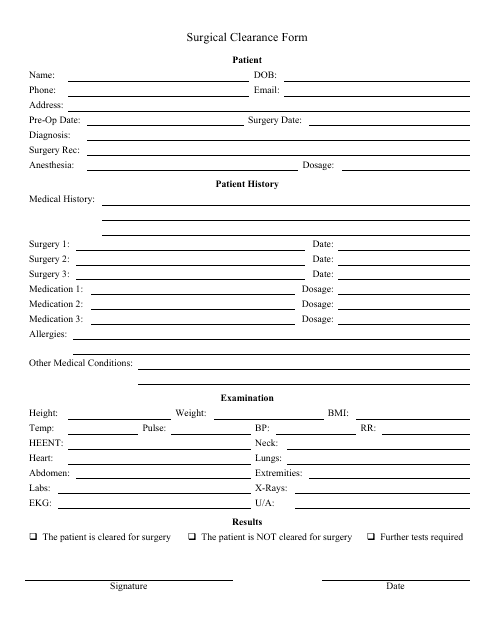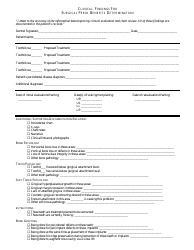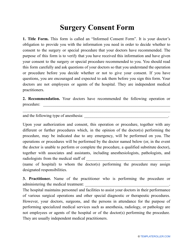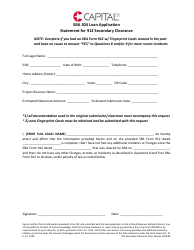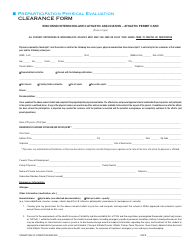Surgical Clearance Form
A Surgical Clearance Form is used to assess a patient's overall health and fitness for undergoing surgery. It helps the surgeon and medical team identify any potential risks or complications that may arise during the surgical procedure. It includes information about the patient's medical history, current medications, and any pre-existing conditions that could affect the surgery.
The surgical clearance form is typically filed by the surgeon or medical professional performing the surgery.
FAQ
Q: What is a surgical clearance form?
A: A surgical clearance form is a medical document that assesses a patient's fitness for undergoing a surgical procedure.
Q: Why is a surgical clearance form required?
A: A surgical clearance form is required to ensure the patient's safety during a surgical procedure by evaluating their medical history, current health status, and any potential risks or complications.
Q: What information does a surgical clearance form include?
A: A surgical clearance form typically includes information about the patient's medical history, current medications, allergies, previous surgeries, and any existing health conditions.
Q: Who fills out a surgical clearance form?
A: A surgical clearance form is usually filled out by the patient's primary care physician or a specialist who is familiar with the patient's medical history and can assess their fitness for surgery.
Q: When should a surgical clearance form be completed?
A: A surgical clearance form should be completed before the scheduled surgical procedure to allow enough time for evaluation and any necessary medical interventions or adjustments.
Q: Is a surgical clearance form mandatory?
A: Yes, a surgical clearance form is typically mandatory for most surgical procedures to ensure the safety and well-being of the patient.
Q: Can a surgical clearance form be completed by any healthcare professional?
A: Ideally, a surgical clearance form should be completed by a healthcare professional who is familiar with the patient's medical history and can assess their fitness for surgery, such as a primary care physician or a specialist.
Q: What happens if a patient does not pass a surgical clearance?
A: If a patient does not pass a surgical clearance, it means that they may have underlying health conditions or risk factors that could pose a significant risk during surgery. In such cases, the surgeon and the patient's healthcare team will discuss alternative treatment options or strategies to manage the risks.
Q: Are there any specific instructions to follow before filling out a surgical clearance form?
A: Before filling out a surgical clearance form, it is advisable for the patient to inform their healthcare provider about any current medications, allergies, or recent changes in their health condition. They may also be instructed to fast or refrain from certain activities prior to the surgical procedure.
